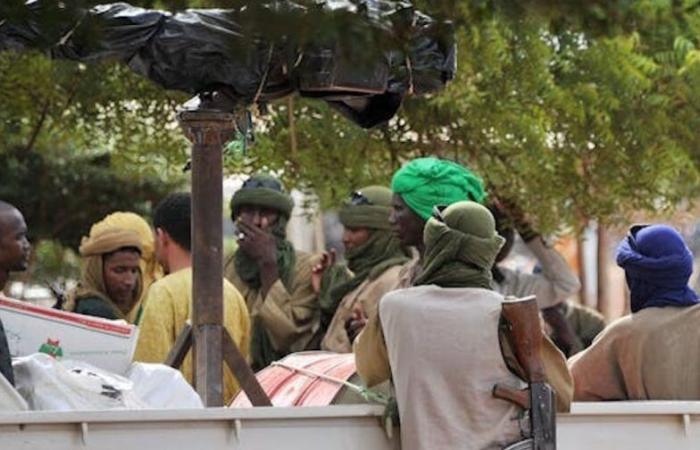The Sahel region of Africa, between the Sahara and the tropical savannahs to the south, has become an important base for groups wanting to establish jihadist states.
A jihadist state is a structure that operates under Islamic law, or sharia, and is led by a single leader, or caliph, who combines political and religious roles.
Groups such as the Islamic State and al-Qaeda have committed to establishing these states, denouncing democratic governance.
Their influence and operating model are expanding. They radicalize the population, exacerbate sectarian conflicts and aggravate the difficulties of already unstable regions.
Operating in parts of Burkina Faso, Mali, Niger, Nigeria and Chad, these groups aspire to form a jihadist caliphate in the Sahel region.
As a security specialist, I have been studying terrorism, insurgency, transnational organized crime, and state fragility in Africa since around 2019.
I believe that several key, interconnected factors could favor the emergence of a jihadist state in the Sahel, West Africa. Among them are the population explosion, the failure of governance and endemic poverty.
Added to this are porous borders, arms trafficking, the presence of forests where people can hide, links to global terrorist groups and recent coups. These coups have set back counterterrorism efforts by elected governments.
Terrorism is fueled by the spread of violent extremist groups. In the Sahel, a large poor population serves as a source of recruitment for jihadists.
Spread terror
The insurgency led by al-Qaeda’s local branch, Jama’at Nusrat al-Islam wal-Muslimin (JNIM), alongside the conflict involving the Islamic State’s Sahel province, has intensified.
According to Armed Conflict Location and Event Data (ACLED), during the first half of 2024, reported deaths across Burkina Faso, Mali and Niger reached an unprecedented total of 7,620, an increase of 9% from the same period in 2023. This is an increase of 37% compared to 2022, and an alarming increase of 190% compared to 2021.
In October 2024, a Boko Haram offensive near the Nigerian border led to the death of around forty Chadian soldiers.
If Burkina Faso, Mali and Niger have become the headquarters of jihadist groups in the Sahel, the target of attacks is quickly moving towards the northern fringes of Togo, Benin and Ghana.
The number of violent incidents within a 50 km radius of the borders of these countries adjacent to the Sahel has jumped and now exceeds 450 cases reported per year.
This clearly demonstrates the existence of an expansionist terrorist program in the Sahel.
Possibility of a jihadist state
The population explosion, the failure of governance and endemic poverty are the main drivers.
Poverty in the Sahel is more widespread than in many other regions of Africa. Nearly 80% of the population survives on less than $2 a day.
The region is experiencing one of the highest population growth rates in the world. According to the World Bank, the populations of Sahel countries are expected to grow rapidly after 2025.
The region’s population is predominantly young, with median ages between 15 and 19 years old. Dependency rates are high: nearly 100 dependents per adult of working age in Niger, Burkina Faso and Mali. Projections suggest that these dependency ratios will continue to exceed those of other sub-Saharan African countries until 2070.
This population growth far outpaces the region’s economic progress, leading to a decline in living standards. It fosters conditions that make young people susceptible to recruitment by terrorist groups.
Among the other factors that favor the expansion of jihadism, the porosity of borders remains an essential factor. It promotes the circulation of small arms and ammunition. The illicit supply of weapons strengthens terrorist groups: they are often equipped with sophisticated weapons.
Recent military coups in the Sahel have benefited terrorist organizations operating in the region. In Mali, Niger and Burkina Faso, these power grabs have hampered efforts to coordinate anti-terrorism initiatives. State authority has weakened and the presence of armed groups has increased.
This climate of instability allows terrorist entities to expand their activities. They take advantage of the absence of power created by the weakening of governments and the withdrawal of Western military forces.
Current counterterrorism efforts by military governments are widely seen as focusing more on protecting the regime in countries’ capitals, while terrorists rule in rural areas.
Dense vegetation in parts of the Sahel makes monitoring difficult. Forests become hideouts and operational bases for jihadist groups.
These spaces include Sambisa and Kuyambana in Nigeria, the Dida forest on the border of northern Ivory Coast, and the W-Arly-Pendjari Complex (WAP Complex) straddling Niger, Burkina Faso and Benin.
For example, the WAP Complex has become a refuge for militant Islamist groups since 2018.
The final factor is the connection with senior leaders of global terrorist groups in Syria, Iraq, Yemen and Afghanistan, and the return of fighters from these countries to the Sahel. These locals who went to fight in terrorist headquarters often return with sophisticated training to propagate terrorist ideologies, conduct recruitment and manage clandestine operations.
More than 5,000 of these terrorist fighters are believed to be fighting in the Sahel.
What role for regional organizations?
To combat the threats posed by jihadist groups in the Sahel, the Economic Community of West African States (ECOWAS) can explore various strategies with military, political and socio-economic dimensions.
ECOWAS has advocated the potential deployment of a regional standby force to strengthen counter-terrorism operations in West Africa. It will need funding, estimated at $2.6 billion per year.
ECOWAS can also launch programs that enable civil society to participate in peacebuilding efforts. By fostering community resilience, the region can counter jihadist recruitment efforts.
What future for the region?
Three divergent scenarios are emerging.
Current military dictators will seek to stay in power. The longer they stay, the more complicated the security situation will become. The emphasis on protecting a small military elite will increase political marginalization and grievances, which often promote recruitment by jihadist groups.
Second, the Secretary General of the United Nations declared in 2022 that “if nothing is done, the effects of terrorism, violent extremism and organized crime will be felt well beyond the region (Sahel) and the African continent”.
In other words, the region could become the global headquarters of a jihadist state.
Finally, there can be a positive future. The Sahel is richly endowed with renewable energies. It has the potential to be one of the richest regions in the world, with a plethora of human, cultural and natural resources.
In a climate of political stability, governments in the Sahel could exploit resources and find paths to economic prosperity.
They can reform the security sector, invest in infrastructure and social services, and curb the expansion of jihadists in the region.






